Founders Friday – Adam Tan

This Friday, we are excited to feature Adam, CEO & founder of Effro.
About Adam
Adam first started his events career by freelancing as a professional emcee. Like his older brother (ex-Mediacorp actor, Andie Chen), he then carved out a space for himself in the entertainment industry by starting his own events company in his early 20s.
While running his own events company, Adam was always looking for ways to improve the industry, which he considered opaque in terms of hiring, pricing and accountability. In 2014, Adam took the plunge and launched Effro, an online platform that simplifies event planning by connecting planners to key event resources — talents, vendors, influencers and venues.
About Effro
Effro is an online B2B platform that connects event planners to key event resources. Organising events has traditionally been frustrating as one would have to spend hours screening, hiring and managing partners (e.g. talents, vendors). Effro provides a one-stop solution by offering digitised vendor profiles, a quotation repository and a standardised payment system.
In one sentence, how would you summarise your journey so far?
What has been the most satisfying aspect of entrepreneurship for you?
What do you feel is the essential quality a startup founder must have?
A: Grit. Running a startup is never easy, especially when you have to balance business needs with personal commitments. I experienced a dreadful year in 2017 when I had to balance Effro’s initial launch with a personal life crisis. Effro’s launch as a B2C platform was not well received, even by the people with whom I used to work. My team was constantly swamped with complaints as we struggled to convey our vision – that digitalisation will be the future of events – to both partners (talents) and customers (event planners).
Nothing went well—Effro’s digital marketing efforts yielded no results (even our online articles faced backlash!), developers wanted to leave, and our cash flow was drying up. In 2017, we hit only 30% of our KPIs, a far cry from what was supposed to happen.
I did not give up. Failure strengthened my resolve to create a product that will revolutionise the events industry. In 2018, I started looking for better answers, asking the right questions and learning even more about the industry. This led me to restructure my team and realign Effro as B2B platform, which then led to a 100% increase in sales from 2017. More recently, we made good progress by moving into 2 new markets. However, that came with its fair share of roller coaster rides as well.
What advice would you have for someone contemplating leaving the corporate world to be an entrepreneur?
A: I never understood the idea of a stable job. Over the past 10 years, many of my friends have lamented about restructuring exercises and how employees were being let go. Even in industries deemed to be ‘iron rice bowls’, companies were shifting towards contract hires and independent contractors.
As an entrepreneur, I feel that faith in oneself should never be based on a job title, but the idea that you can achieve something based on the skills and network that you have built over the years.
The key to transitioning from a stable job is to have faith in the tools (network, skills and knowledge) that you have acquired over the years. You may not have all the answers, you may be scared of the unknown, but these tools will help you navigate the choppy waters of the startup world.
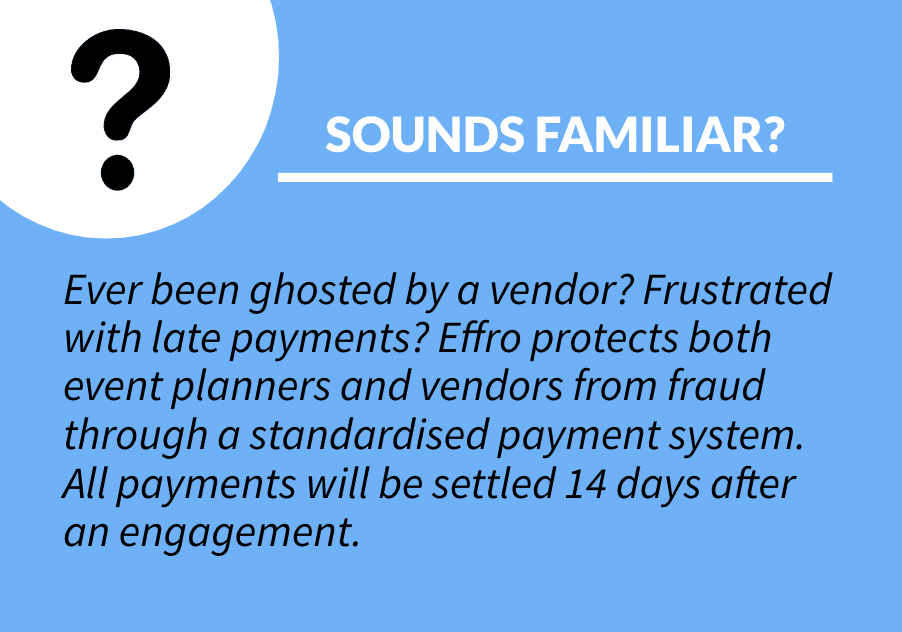
How did you acquire your first customers?
What was the biggest challenge you faced in scaling your sales?
A: The challenge has always been the traditional mindset of our prospective clients and their resistance to change. As much as technology can improve their business by 10x, people prefer to do things the “old” way. It has been difficult to educate our prospective clients and convince them to leverage our technology to improve results.
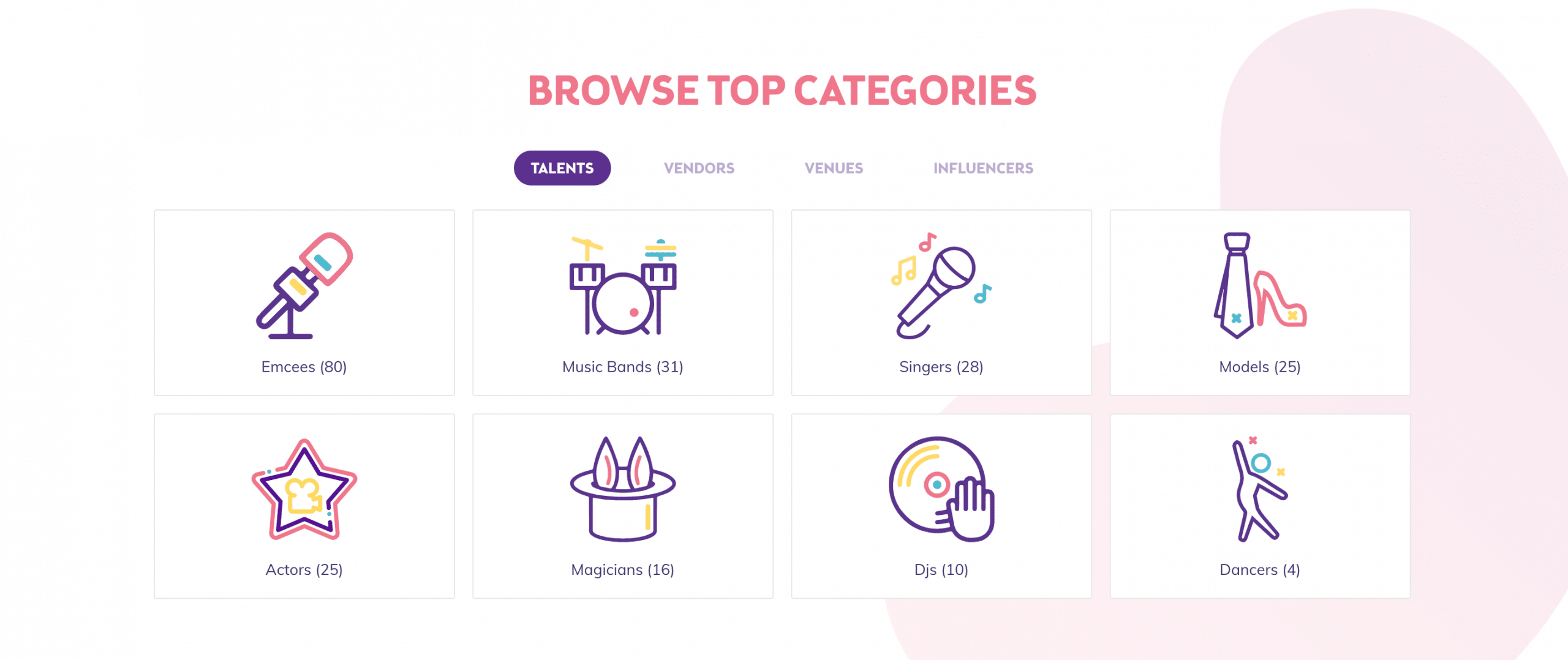
A screenshot of Effro’s one-stop platform.
What aspects were the most important when building your team?
If you had to build your team again, what would you do differently?
A: We built our hiring process spontaneously while growing. I would have modified our process to focus on culture right from the start. This would have helped me gather the right people and reduce employee turnover.
According to your investors, what sets you apart from other startups?
What are the top 3 tips you have for investor pitching?
1) Be passionate. This is your business, nobody has a greater stake in it than you. Your passion and commitment should be made clear to investors
2) Know your numbers. It will boost your credibility should investors grill you, and they are known to do so.
3) Be real. Not everyone will like you or your business. But if you stick to what you are doing, there will be someone who will.
Any other words of wisdom that you would like to share?
A: The journey is tough, tougher than you can ever imagine. But the people you meet, the bonds that you create and the rewards you get are also beyond imagination. A quote that resonates with me would be, “A bird sitting on a tree is never afraid of the branch breaking because her trust is not in the branch but in its own wings. Always believe in yourself.”
Stay tuned for next week's episode of Founders Friday
TalentKraft offers solutions specially catered to your startup’s HR and scaling challenges.
Like this article?
Want to get insights on your team's culture?
Click on this button to find out how you can do that with TalentKraft’s TeamSight.


Discovering ourselves as Gen Zs
Discovering ourselves as Gen Zs, we face unique challenges in aligning our careers with our passions. TalentKraft’s internship provided invaluable experiences, helping us define problems, explore options, and evaluate career paths. Through workshops, personality profiling, and real-world projects, we gained insights into various industries and honed our problem-solving skills. This journey has been crucial in shaping our professional growth and career decisions.
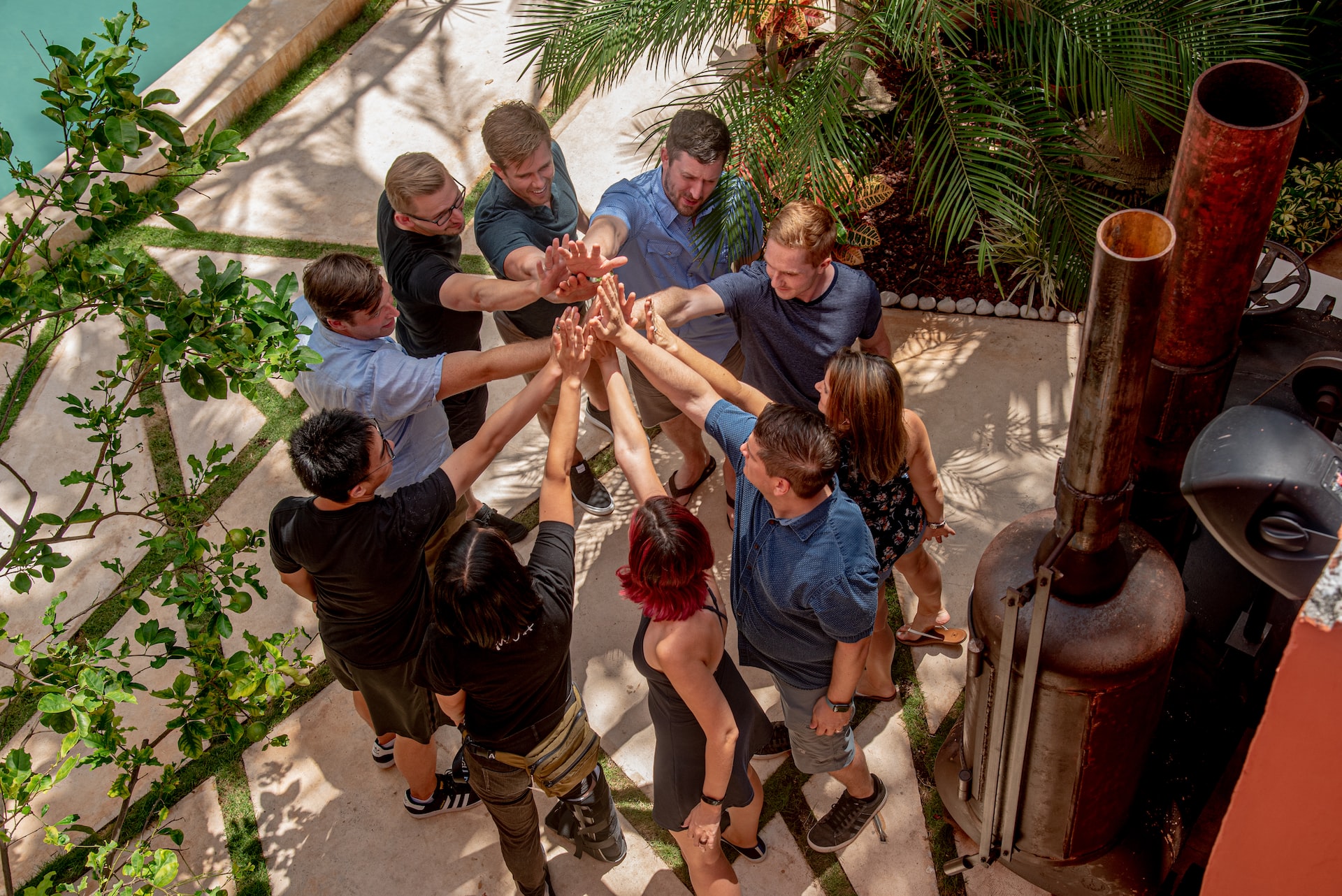
Top 3 HR challenges faced by non-profits and how to tackle them
According to LinkedIn, firms with poor employer brands could be paying as much as US$7.6 million. What exactly is an employer brand and what does it entail? And how can you improve your employer brand today to appeal to top talents?

5 ways to improve your employer brand
According to LinkedIn, firms with poor employer brands could be paying as much as US$7.6 million. What exactly is an employer brand and what does it entail? And how can you improve your employer brand today to appeal to top talents?
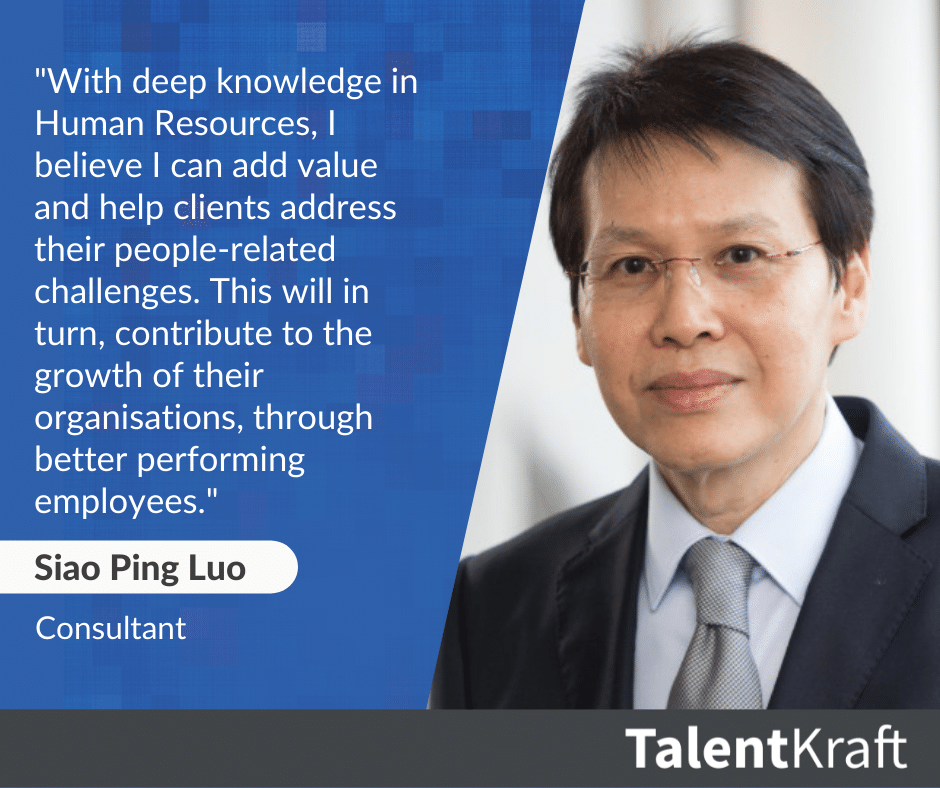
Talent spotlight: Meet Siao Ping Luo, HR expert & Consultant with growth mindset
With over 20 years of hands-on experience in the HR space, Siao Ping has become a leader in the Human Resources (HR) field and a consultant on people-related topics across diverse industries in the APAC region.
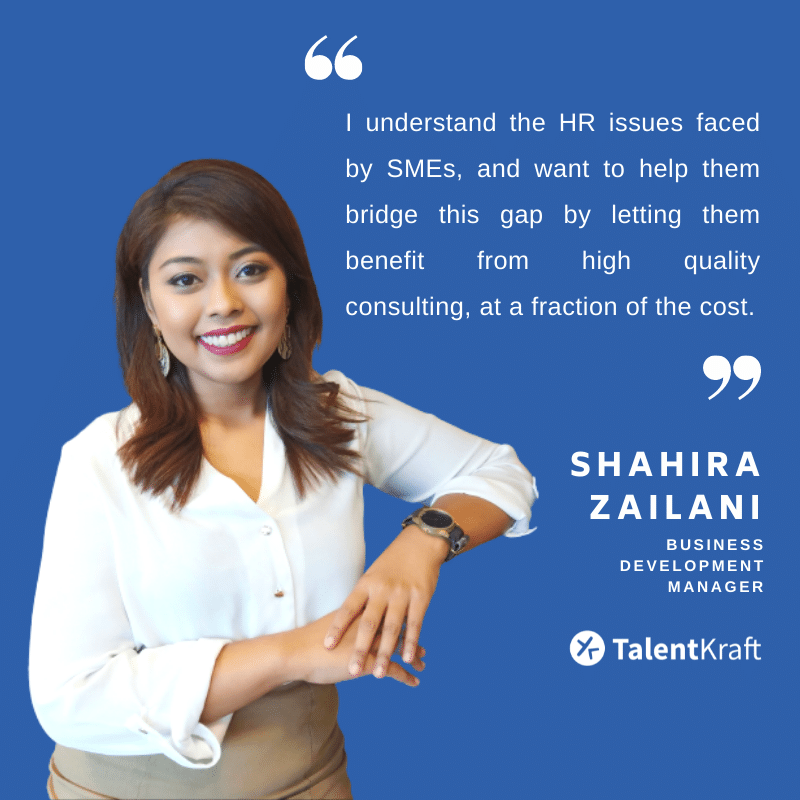
Talent spotlight: Our BD manager’s journey with HR
With 14 years of experience leading teams, our new Business Development Manager is no stranger to the intricacies and challenges of HR. Shahira Zailani shares her thoughts on helping companies build more effective teams!
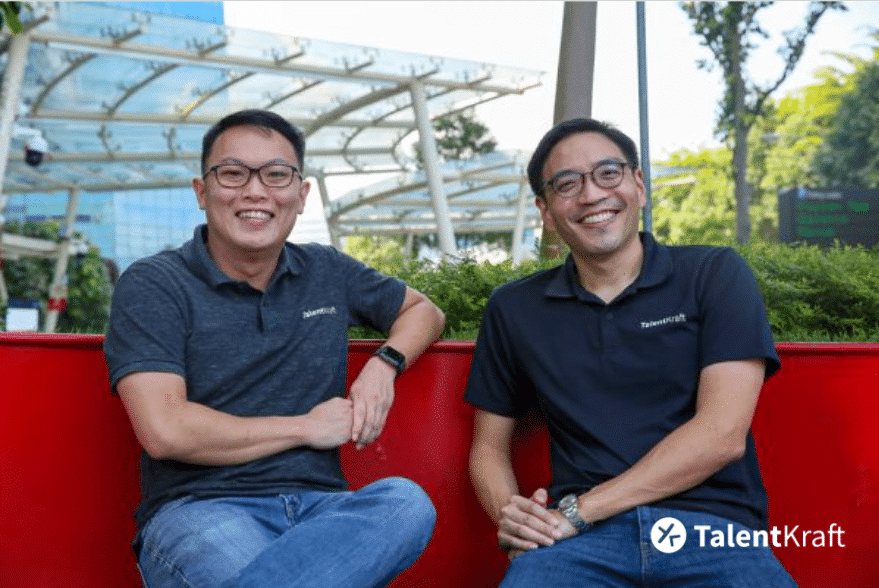
TalentKraft helps SMEs and businesses unlock value in HR – THE BUSINESS TIMES
Part of the strategy consultant’s challenge is educating SME leaders on the importance and value of HR to their wellbeing.

